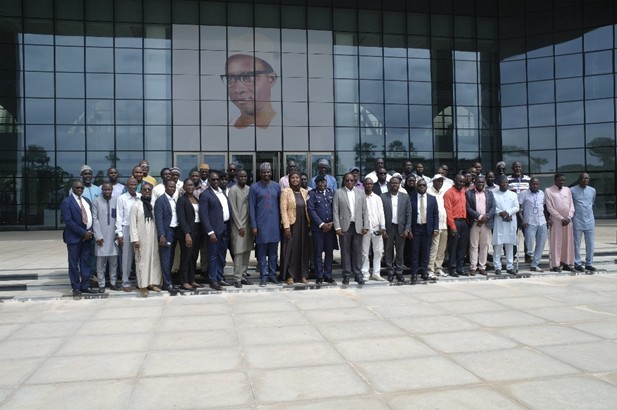
Held at the Sir Dawda Kairaba Jawara International Conference Centre, this 2025 Bill follows a series of two-week internal session conducted by the committee constituted by the ministry with technical expertise from government and the transport sub-sector.
The Bill, however, seeks to address the legislative gaps in the current Motor Traffic Act of 1948 and incorporate best practices to enhance safety and improve efficiency in the road transport sub-sector.
Welcoming the gathering, Matarr Ceesay, permanent secretary at the Ministry of Transport, Works and Infrastructure, described the event as crucial as it marks a critical milestone in the country’s efforts to modernise the legal and institutional framework governing road transport in the country.
The current legislative transport framework, which is the Motor Traffic Act, he said, has been in place since 1948 and no longer reflects the evolving dynamic challenges and changes in the transport sector.
“Road transport is the backbone of national connectivity, economic development and social development. As we all know, a lot of our goods and services in the country are actually transported using our roads.”
PS Ceesay observed that, it is therefore part of the sector’s immense challenges, adding that amid increasing traffic volumes, they have a lot of issues stemming from unregulated traffic transport services, unsafe road practices, due to the absence of digital enforcement and adequate legislative frameworks, which can be used as instruments to deal with the arising realities of the day.
Responding to some of these challenges, PS Ceesay affirmed that the Ministry with support from the World Bank through the Gambia Infrastructure Project (GIP), has initiated the formulation of the Road Transport Bill.
To this end, he thanked the Gambia Police Force, the National Road Authority and The Gambia Transport Union, who are key stakeholders in the crusade.
The Bill, he added, is designed to introduce productive reforms that support safer roads, improve regulations, and stronger enforcement mechanism that ensure both public and private transport services.
“This process has been a consultative and evidence-based initiative with the consultant having studied best practices in other countries and made best recommendations and see how best officials can domesticate it in the Gambian context.”
The validation, according to him, follows a series of two-week internal sessions conducted by the committee constituted by the ministry, acknowledging that this team comprises technical experts from government and the transport sector, in a broader move meant to ensure the bill undergoes thorough scrutiny before the final external validation.
He expressed gratitude on behalf of the Ministry to the World Bank team for the support in the crucial initiative, which, he said, has been yearning for attention these past years.
Momodou Musa Joof, managing director cum chief executive officer (CEO) for West Africa Takaful Insurance, who is also the president of the Gambia Insurers Association, described the bill long overdue in view of the fact that the existing one has been in operation since 1948.
Joof underscored the importance of the event, noting that the transportation subsector is one of the most important areas in national development.
He observed that the country’s roads are becoming more sophisticated compared to the past, recalling some of the features used to ensure safety on our roads in those days.
“Better late than never and reviewing our bill to reflect our current generation and mechanical regulation cannot be overemphasised.”
The bill, he said, is said to have undergone professional scrutiny and further went on to thank the consultants for their invaluable contribution.
To this end, he equally called on participants to thoroughly scrutinise by injecting their inputs to be also to domesticate it.
Sulayman Sumareh Janneh, acting MD, National Road Authority, described the bill as something long overdue in view of all the critical aspect of the country’s road transport system and the constraints people experienced.
He called on all to look at the greater good of the country, adding that other measures are needed to create greater understanding and come up with a system that will help save lives and properties.
Omar Ceesay, president, General Transport Union (GTU), expressed similar sentiments, saying the day marks another important day in the country’s road transport sector.


